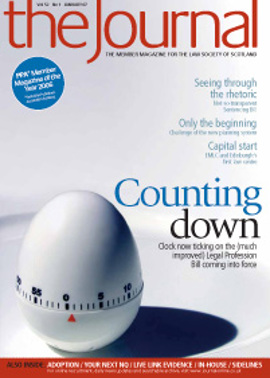Restructuring - in hindsight

In Re Oval 1742 Ltd [2006] All ER (D) 57, O granted a fixed and floating charge over its business and assets to The Royal Bank of Scotland. In August 2002, O sold certain assets to two subsidiaries (the “422 companies”). The share capital in these companies was then sold to a third party. The consideration payable by the companies was an initial amount on completion, and the balance as they realised book debts transferred to them. If the deferred consideration was not paid in full by November 2002, it was to be reduced by £1 for each £1 of book debts still unrealised, which debts were to be assigned to the bank.
The consideration was to be paid to O’s solicitors, who separately undertook to remit to the bank the consideration less certain retentions until the bank’s indebtedness was discharged. In exchange for this undertaking the bank released the assets transferred to the 422 companies from its security, to the extent necessary to enable these to be sold free of the charge.
The initial consideration was paid and remitted. Early in September O’s shareholders passed a resolution to wind up the company. Subsequently some deferred consideration was paid to O’s solicitors and remitted. It was unclear whether part or all of that sum had been received prior to the date of winding up. In 2003, the 422 companies assigned to the bank their rights to the unrealised book debts. The bank received a further sum on realising these.
The claim of taking possession
HM Customs & Excise as preferential creditor raised proceedings claiming payment out of the initial and deferred consideration monies in priority to the bank, by reason of s 196 Companies Act 1985 and/or s 175 Insolvency Act 1986.
Section 196 applies only to companies registered in England and Wales, and, as amended, provides that if, when a company is not being wound up, possession is taken by or on behalf of the holders of a debenture secured by a charge which was, as created, a floating charge, preferential debts are to be paid out of the assets in priority to the chargeholder.
Section 175 provides for the payment of preferential debts in priority to all other debts and as to the ranking of preferential debts in a winding up.
Analysis: substance not form
The judge analysed the transactions in detail and closely scrutinised the release by the bank. She emphasised the fact that a specific release was requested from the bank, believing that this was because O’s directors anticipated crystallisation of the charge. It seems to the writer that the sale to the 422 companies could not have been categorised as a sale in the ordinary course of business and would likely have been a breach of the floating charge without bank consent.
The judge then held that the asset transfer created a contractual debt owed to O by each of the 422 companies, which debts therefore formed part of the property charged. She held that payment to the bank at this stage amounted to “taking possession” for the purposes of s 196. The substance rather than the form of the transaction was the key issue, and in substance the bank was realising its security. The deferred consideration was also caught by s 196 or s 175, the only substantive difference between the sections being that how the charged assets came to be realised under s 175 was irrelevant. The 422 companies paid the deferred consideration in discharge of debts charged to the bank. The bank was realising its security over these monies. The provision to reduce the debts if not realised did not affect the analysis.
The judge held however that the assignation of the outstanding debts to the bank was materially different. The sums were due by the 422 companies, not by O. The bank did not have a charge over the debts of the 422 companies and the preferential creditors had no claims over receipts by the bank from the debts assigned to it.
The scope of s 175
It is relatively easy to envisage that the hivedown of certain assets and business was attractive to a third party purchaser and would realise greater value. It is equally straightforward to imagine the bank wishing to ensure that if it agreed to such a transfer, its exposure was also reduced. Presumably those involved did not see the transaction as a realisation of the bank’s security. Whilst the preference for crown debts was abolished by the Enterprise Act 2002, there remain some preferential debts. While s 196, as noted, applies only to English registered companies, s 175 would operate to the benefit of preferential creditors in such a situation if the reorganisation were followed by a winding up.
Alistair S Burrow, Tods Murray LLPL
In this issue
- The Isle of Man
- Contractual handcuffs: enhanced redundancy rights
- Strength of purpose
- Cleared for take-off
- Countdown phase
- A quiet revolution
- Acting your age
- Adopting new solutions
- Clear as mud?
- Majoring in minorities
- Believe in the future
- Appreciation: Dr J Stuart Fair
- Grow your own assistant
- On the radar
- Status of the expert's report
- Rewarding experience
- Restructuring - in hindsight
- Court rules catch up with live link TV
- Scottish Solicitors' Discipline Tribunal
- Website reviews
- Book reviews
- Top notch training
- A clearer way to deal
- Not the best option
- Letting in the disabled
- Single survey: have your say






